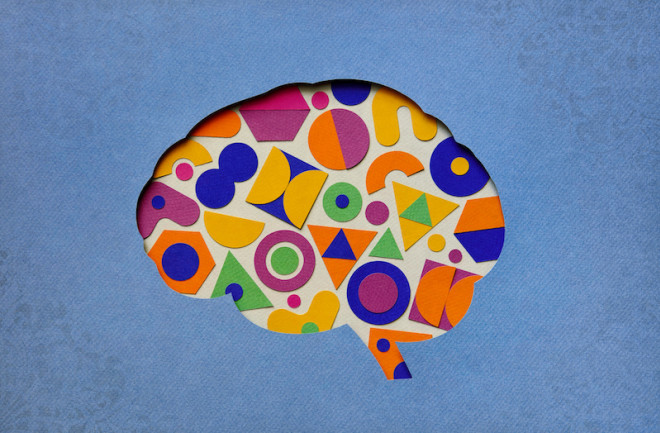By the middle of August 2023, one of Joey Lawrence’s videos on TikTok had over 3 million views — and it wasn’t a viral dance or recipe. Lawrence, a psychologist who also happens to be autistic, had posted the video about a month prior to talk about a new autism assessment on monotropism, when a person’s attention is dedicated to a narrow range of interests.
The views on Lawrence’s video aren’t entirely surprising: TikTok has exploded with content on neurodiversity since the app’s surge in popularity during the pandemic. Now there are over 11 billion views on TikTok’s hashtag #neurodivergent, and Google searches for the term have increased steadily over the past year.
Neurodiversity is a term that refers to the natural range of differences in people’s brains. The neurodiversity movement says that the brains that diverge from the average within that range shouldn’t be dismissed as deficient automatically. Instead, if a neurodivergent person struggles to function in society, it may be because there’s a mismatch between their abilities and their surroundings, not because there’s something inherently wrong with their thinking.
The term dates back to the autism community in the 1990s, though it’s now applied to all sorts of mental differences — from ADHD to synesthesia. And though neurodiversity went mainstream as a social justice movement, it’s now transforming the way we research the brain, with more and more researchers applying neurodiversity-inspired approaches to cognition.
What Can Neurodiversity Help Explain?
In the past, “autism was widely seen as an individual medical tragedy,” writes Robert Chapman, a neurodivergent philosopher with autism, in their 2023 book Empire of Normality: Neurodiversity and Capitalism. “The only hope for autistic people and our families, it was thought, was that we would one day be fixed through behavioral conditioning or biomedical intervention.”
Neurodiversity challenges that notion. Rather than assuming, for instance, that an autistic person’s truggles to find a job are the result of some internal shortcoming, neurodiversity research considers the existence of external explanations. By doing so, researchers in 2023 added to the growing body of evidence that non-autistic people can react negatively to the style, not content, of autistic communication, suggesting that barriers to autistic employment emerge from the environment, not only the individual.
Added to this are shifting understandings of the theory of mind, or the ability to consider other people’s perspectives. “Traditionally, researchers suggested [the] theory of mind was deficient in autism,” says Patrick Dwyer, an autistic graduate student studying developmental psychology at the University of California, Davis. “Some even said this was a core, central deficit common to all autistic people.”
Studies from 2022 and 2023 have shown, however, that many autistic people are prosocial and skilled at seeing others’ perspectives, while neurodiversity advocates stress it takes two to communicate. Though autistic people may struggle to understand a neurotypical perspective, neurotypical people may struggle to understand an autistic perspective, “making it a ‘double empathy problem,’ ” Dwyer says.
This thread of research is already having an impact, helping autism interventions like the “social stories” technique take off. In June 2023, a study in Frontiers in Psychology proposed that this intervention, which introduces autistic children to common social situations, works by facilitating communication between neurodivergent and neurotypical individuals, with a focus on supporting children, rather than “fixing” them.
The technique is compatible with what autistic individuals advocate for themselves. In February 2023, Elizabeth Pellicano, an autism researcher at University College London, published an assessment of the funding of recent autism research. She found the majority was directed toward the biological causes of autism, while the minority was directed toward services, support and education. Consulting members of the autistic community, she asked if the funding reflected their priorities. “They felt that there was such an imbalance in the research profile … that most of the research was not going to have any effect on everyday lives,” she says.
Among the topics that participants felt were ignored were the advantages of mental difference. “Wouldn’t it be amazing to see research examples of, like, autistic people’s resilience and ability to thrive?” one participant responded.
By breaking down the negative connotations of cognitive difference, the neurodiversity movement could change how cognitive science is conducted, pushing researchers to embrace and explain a broader assortment of brains, according to a February 2023 Cognitive Science paper. “Cognitive science can develop more general theories of cognitive diversity by broadening the range of diversity it considers worthy of attention,” write the authors of the paper, including the University of Munich’s Justin Sulik, a cognitive scientist with ADHD.
How Neurodiversity Transforms Thinking
In recent years, more research has shown that the inner workings of our brains are strikingly varied. Some people have aphantasia and lack a mind’s eye, while some lack an internal monologue. Others have synesthesia and see colors or numbers decorating their perception. These differences are all forms of neurodivergence, Sulik says, and aren’t always detrimental. A January 2023 study suggests, for instance, that people with aphantasia aren’t negatively affected by their inability to create mental images. “There’s no one way that the mind is supposed to work,” Sulik says.
Crucially, the neurodiversity movement allows neurodivergent people to transform their thinking about themselves. “The dominant medicalized narrative suggested that being autistic made me somehow tragic, broken, and in need of fixing,” Chapman writes in their 2023 book. “This was why I found discovering the neurodiversity movement, which offered a different analysis, so liberating.”
As for neurodivergent people on TikTok, they’re finding communities to celebrate their minds. “One of my favorite things about being neurodivergent is that my thoughts make no sense,” one user shared in a video from April 2023. “But other neurodivergent people, they understand.”
This story was originally published in our January February 2024 issue. Click here to subscribe to read more stories like this one.

